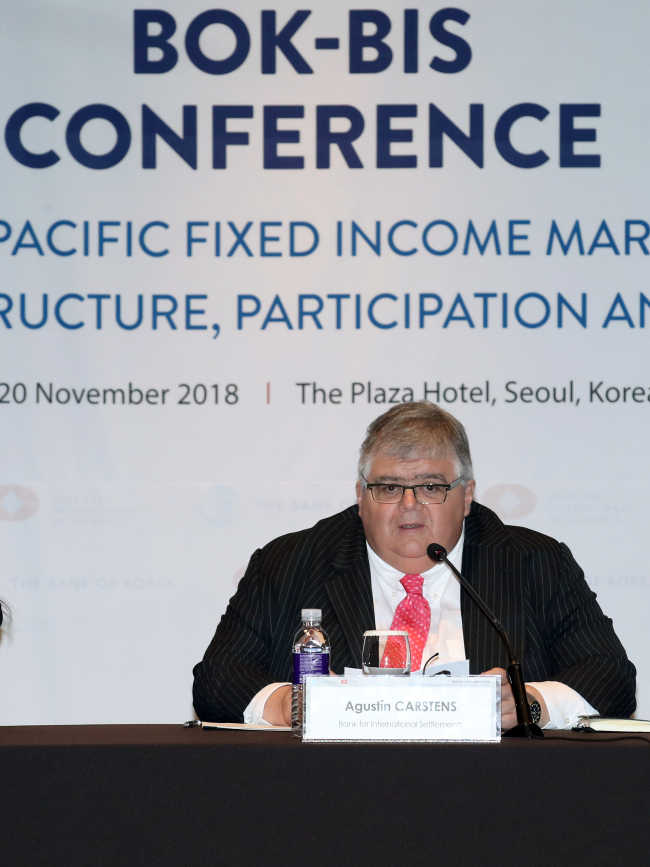As the global economy faces an inevitable slowdown next year, major economies should lay emphasis on structural reforms to respond to the decline in labor productivity and growth potential, according to a top-level official of the Bank for International Settlements.
“I agree with the International Monetary Fund’s revised forecast in September, when it cut down the global economic growth for next year to 3.7 percent from the former 3.9 percent,” Agustin Carstens, general manager of BIS, said in a press conference.
 |
Agustin Carstens, general manager of BIS (Bank of Korea) |
The press event was held at Plaza Hotel Seoul on the sidelines of the yearly conference held jointly by the BIS and the Bank of Korea.
As a key factor of such slowdown, the BIS official pointed out to the prolonged trade conflicts between the United States and China, which consequently triggered economic uncertainties and discouraged investor sentiment across the globe.
He nevertheless pinned hopes on the upcoming bilateral meeting between US President Donald Trump and Chinese President Xi Jinping during the Group of 20 summit to be held in Argentina next week.
“What is important for major economies at this point in time is to take seriously the adoption of structural reforms in order to improve labor productivity and maintain growth potential,” Carstens said, citing multilateral trade as a way to ameliorate the current market environment.
As for Asia’s fourth-largest economy, the BIS official remained optimistic, citing the country’s strong economic fundamentals, inflation control and foreign exchange reserves.
Also, the recent election of BOK Gov. Lee Ju-yeol as a member of the BIS directorate will further enhance the country’s leverage in the international network, he added.
Lee is set to begin his three-year term in January next year, becoming the 11th member of the 18-person panel and the first South Korean national to join the BIS’ decision-making body.
“BIS is a global institution, but Asia will continue to have a bigger presence,” Carstens said.
“With Lee as member of the BIS board, South Korea will find itself heard more not only within the BIS system but also in the global financial circles.”
Celebrating the 20th anniversary of its Hong Kong office last year, BIS pledged to further expand its presence in the Asian region by shifting some of the key decision-making functions from Basel to Hong Kong.
By Bae Hyun-jung (
tellme@heraldcorp.com)








![[Today’s K-pop] Blackpink’s Jennie, Lisa invited to Coachella as solo acts](http://res.heraldm.com/phpwas/restmb_idxmake.php?idx=644&simg=/content/image/2024/11/21/20241121050099_0.jpg)